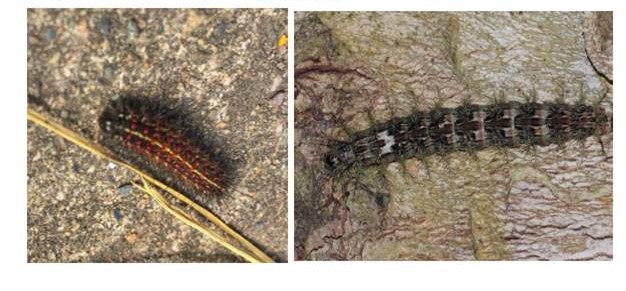Abstract
Introduction: In Mexico there is a lack of knowledge about the importance of promotion of psychological well-being in Medical Education. Most of the research focuses on the pathologies developed during his journey as a student in relation to the adverse environments they face. Objective: To identify the level of psychological well-being in medical residents from first to fourth year of a public university in Mexico and the need for its inclusion in the formal curriculum in Medical Education. Method: Descriptive and cross sectional study. The Ryff Psychological Wellbeing Scale (SPWS) was used which was previously validated in the study population. 157 first to fourth year residents of the different specialties participated. Results: The scale was made up of four factors. It was found that 35.1% had low levels and 33.7% average levels of psychological well-being. Conclusions: Most of the residents showed levels of medium and low psychological well-being, which make reference to the relevant decision made by the corresponding authorities that include the promotion of psychological well-being within the formal curriculum of Medical Education.
Acosta-Fernández M, Aguilera-Velasco ML, Pozos-Radillo BE, Torres-López TM, Parra Osorio L. Vivencias y experiencias de médicos residentes mexicanos durante su primer año de formación académica. Inv Ed Med. 2017;6(23):169-79.
Jiménez-López JL, Arenas-Osuna J, Ángeles-Garay U. Síntomas de depresión, ansiedad y riesgo de suicidio en médicos residentes durante un año académico. Rev Med Inst Mex Seguro Soc [internet]. 2015;53(1):20-8. Available at: https://www.medigraphic.com/pdfs/imss/im-2015/im151d.pdf
Romo Nava F, Tafoya SA, Heinze Ge. Estudio comparativo sobre depresión y los factores asociados en alumnos del primer año de la Facultad de Medicina y del Internado. Salud Ment. 2013;36(5):375-9.
Paredes O. Nuevos retos en la educación: el bienestar como una nueva competencia médica. Univ Med. 2008;49(1):97-110.
Montes-Villaseñor E, García-González J, Blázquez-Morales MSL, Cruz-Juárez A, De-San-Jorge-Cárdenas XM. Exposición a la violencia durante la formación profesional de los residentes médicos. Ciencia UAT. 2018;12(2):54-66.
Velásquez L, Colin R, Gonzáles M. Afrontando la residencia médica: depresión y burnout. Gac Med Mex. 2013;149(2):183-95.
Vázquez C, Hervás G, Rahona JJ, Gómez D. Bienestar psicológico y salud: aportaciones desde la psicología positiva. Anu Psicol Clín Salud. 2009;5:15-28.
Pereyra-Elías R, Ocampo-Mascaró J, Silva-Salazar V, Vélez-Segovia E, da Costa-Bullón AD, Toro-Polo LM, et al. Prevalencia y factores asociados con síntomas depresivos en estudiantes de ciencias de la salud de una Universidad privada de Lima, Perú 2010. Rev Perú Med Exp Salud pública. 2010;27(4):520-6.
Fonseca M, Sanclemente G, Hernández C, Visiedo C, Bragulat E, Miró O. Residentes, guardias y síndrome de burnout. Rev Clin Esp. 2010;210(5):209-15.
Prieto-Miranda SE, López-Benítez W, Jiménez-Bernardino CA. Medición de la calidad de vida en médicos residentes. Educ Med. 2009;12(3):169-77.
Thomas, M. Dyrbye L, Huntington J, Lawson K, Novotny P, Sloan J, and Shanafelt T. How do distress and wellbeing relate to medical student empathy?: a multicenter study. J Gen Intern Med. 2007;22:177-83.
Dyrbye L, Thomas M, Power D, Durning S, Moutier C, Massie S, Harper W, Eacker A, Szydlo E, Sloan J, Shanafelt T. Burnout and serious thoughts of dropping out of medical school: a multi-institutional study. Acad Med. 2010;85:94-102.
Vielma Rangel J, Alonso L. El estudio del bienestar psicológico subjetivo: una breve revisión teórica. Educere. 2010;14(49):265-75.
Seligman MEP. Florecer: la nueva psicología positiva y la búsqueda del bienestar. México D. F.: Oceáno; 2014.
Esteban MNB, Cabaco AS, Litago JDU. La psicología positiva aplicada a la educación: el programa CIP para la mejora de las competencias vitales en la educación superior. Refiedu. 2013;6(4):244-56.
Marsollier R, Aparicio M. El bienestar psicológico en el trabajo y su vinculación con el afrontamiento en situaciones conflictivas. Psicoperspectivas. 2011;10(1):209-20.
Castro Solano AC. El bienestar psicológico: cuatro décadas de progreso. Rev Interuniv Form Profr. 2009;23(3):43-72.
García-Viniegras CRV. El bienestar psicológico: dimensión subjetiva de la calidad de vida. Revista Electrónica de Psicología Iztacala. 2005;8(2).
Sandoval Barrientos S, Dorner París A, Véliz Burgos A. Bienestar psicológico en estudiantes de carreras de la salud. Inv Ed Med. 2017;6(24):260-6.
López SJ, Louis MC. The principles of strengths-based education. JCC. 2009;10(4).
Goddard RD. Relational networks, social trust, and norms: a social capital perspective on students’ chances of academic success. Educ Eval Policy Anal. 2003;25(1):59-74.
Machado L, Souza CTN, Nunes RO, de Santana CN, Araujo CF, Cantilino A. Subjective well-being, religiosity and anxiety: a cross-sectional study applied to a sample of Brazilian medical students. Trends Psychiatry Psychother. 2018;40(3):185-92.
Martín Asuero A, Rodríguez Blanco T, Pujol Ribera E, Berenguera A, Moix Queraltó J. Evaluación de la efectividad de un programa de mindfulness en profesionales de atención primaria. Gac Sanit. 2013;27:521-8.
Bellosta-Batalla, M, Pérez-Blasco J, Nácher M J, Moya-Albiol L. Mejora de la empatía cognitiva y el bienestar psicológico en estudiantes de psicología tras una intervención en mindfulness. Revista Electrónica de Psicología Iztacala. 2016;19(1):336-54.
Warnecke E, Quinn S, Ogden K, Towle N, Nelson M. A randomised controlled trial of the effects of mindfulness practice on medical student stress levels. Med Educ. 2011;45(4):381-8.
Shapiro SL, Schwartz GE, Bonner G. Effects of mindfulness-based stress reduction on medical and premedical students. J Behav Med. 1998;21(6):581-99.
Finkelstein C, Brownstein A, Scott C, Lan Y. Anxiety and stress reduction in medical education: an intervention. Med Educ. 2007;41(3):258-64.
Sibinga E, Wu A. Clinician mindfulness and patient safety. JAMA. 2010;304(22):2532-3.
Prieto G, Delgado AR. Fiabilidad y validez. Papeles del Psicólogo. 2010;31(1):67-74.
Pedrals N, Rigotti A, Bitran M. Aplicando psicología positiva en educación médica. Rev Med Chile. 2011;139:941-9.
Jurado García PJ, Benítez Hernández ZP, Mondaca Fernández F, Rodríguez Villalobos JM, Blanco Ornelas JR. Análisis de las propiedades psicométricas del Cuestionario de Bienestar Psicológico de Ryff en universitarios mexicanos. Acta Univ. 2017;27(5):76-82.
Muñiz J. Las teorías de los tests: teoría clásica y teoría de respuesta a los ítems. Papeles del Psicólogo. 2010;31(1):57-66.

This work is licensed under a Creative Commons Attribution 4.0 International License.
Copyright (c) 2020 Carolina Delgado Domìnguez, Adriana Rodríguez Barraza, Roberto Lagunes Còrdoba, Francisco Domingo Vázquez Martínez



